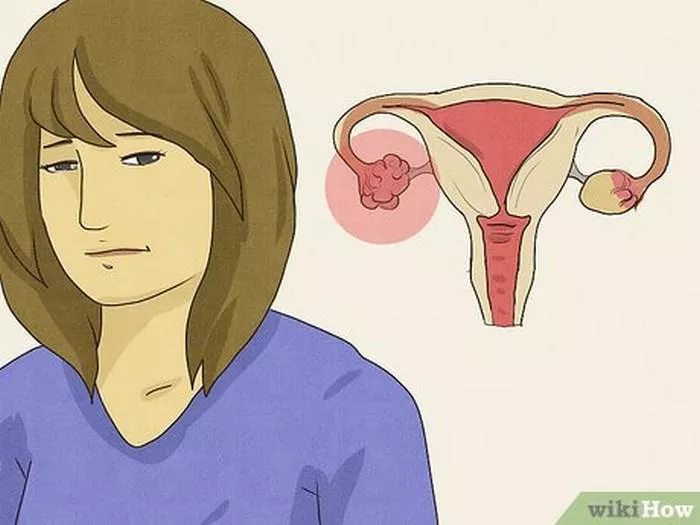Infertility refers to the situation where a woman is unable to conceive naturally within one year of regular sexual activity. Infertility is a complex medical issue involving multiple factors. Among them, the most common factors contributing to female infertility include ovulation disorders, tubal issues, uterine factors, and male factors. This article will delve into these factors and their impact on female reproductive capacity, helping readers better understand the secrets behind female infertility.
Ovulation Disorders
Ovulation disorders are one of the most common factors contributing to female infertility. Normal ovulation is crucial for female pregnancy. However, due to various reasons, some women may have irregular ovulation or abnormal ovulation cycles. The causes of ovulation disorders are varied, including but not limited to:
Polycystic Ovary Syndrome (PCOS): This is an endocrine disorder affecting the ovulation process in women. PCOS patients may experience hormonal imbalances, ovarian cyst changes, and insulin resistance, leading to ovulation disorders.
Hyperprolactinemia: Hyperprolactinemia refers to abnormally elevated levels of prolactin in the blood, which may inhibit the ovulation process. This condition can be caused by pituitary tumors, medications, or other endocrine disorders.
Thyroid Function Abnormalities: Both hyperthyroidism and hypothyroidism may affect the ovulation process in women. Thyroid hormones play a crucial role in the normal functioning of the reproductive system, and their abnormalities may lead to ovulation disorders.
Tubal Issues
The fallopian tubes are the site where sperm and eggs meet and fertilization occurs, as well as the pathway for transporting the fertilized egg to the uterus. Tubal issues are another common factor leading to female infertility, including but not limited to:
Tubal Blockage: Tubal blockage may be caused by infections (such as pelvic inflammatory disease), surgery (such as tubal ligation), or congenital abnormalities. Blockages prevent the meeting of sperm and eggs and the transportation of fertilized eggs, leading to infertility.
Tubal Inflammation: Tubal inflammation may be caused by bacterial infections, resulting in swelling, adhesion, or even blockage of the fallopian tube walls. This condition may affect the normal transportation of sperm and eggs, leading to infertility.
Tubal Malformations: Tubal malformations may be congenital or acquired (such as scar tissue formation after surgery). Malformations may affect the normal meeting of sperm and eggs and the normal implantation of fertilized eggs, leading to infertility.
Uterine Factors
The uterus is the site where the fertilized egg implants and develops. Uterine factors are also common factors leading to female infertility, including but not limited to:
Endometriosis: This is a common gynecological condition where endometrial tissue grows outside the uterus, which may cause pain, irregular menstruation, and infertility.
Uterine Fibroids: Uterine fibroids are benign tumors that may affect the shape and function of the uterus, leading to infertility. Fibroids may hinder the meeting of sperm and eggs and the transportation of fertilized eggs, or affect the normal implantation of the endometrium.
Male Factors
Although infertility is usually associated with females, male factors may also contribute to female infertility. Male factors include but are not limited to:
Low Sperm Count: Normal semen should contain a sufficient number of active sperm. Low sperm count (oligospermia) may reduce the chances of sperm meeting eggs, thereby affecting pregnancy.
Poor Sperm Motility: Sperm motility refers to the movement ability of sperm. Sperm with poor motility may not effectively swim toward eggs and complete fertilization.
Other Factors
In addition to the above common factors, there are other factors that may contribute to female infertility, including but not limited to:
Age: Female fertility declines with age. Especially after the age of 35, the decline in fertility becomes more pronounced. Older women may face a higher risk of infertility.
Lifestyle Habits: Unhealthy lifestyle habits (such as smoking, excessive drinking) may affect female fertility. These habits may disrupt the endocrine system, affect ovarian function, and damage reproductive organ health.
Conclusion and Recommendations
Female infertility is a complex medical issue involving multiple factors. Understanding the common factors contributing to female infertility can help better prevent and treat this problem. For women with fertility needs, it is recommended to undergo regular check-ups to understand their reproductive health status. At the same time, maintaining a healthy lifestyle, avoiding the impact of adverse environmental factors, and timely treatment of underlying diseases can help improve fertility.























